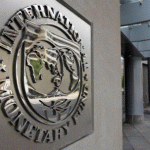 The latest Salary increment by government reveals one of the many strategies by which traders inflate the market to set a new false price. In some regional state (harer,diredewa,jijiga) and as sources from Addis Ababa disclosed , major wholesalers were able to convince retailers to adjust new prices almost immediately upon verifying that the Salary increment was true.
The latest Salary increment by government reveals one of the many strategies by which traders inflate the market to set a new false price. In some regional state (harer,diredewa,jijiga) and as sources from Addis Ababa disclosed , major wholesalers were able to convince retailers to adjust new prices almost immediately upon verifying that the Salary increment was true.
The saying goes, “Menus are in a state of flux, while quantity and quality are diminishing consistently.” Any devoted patron of restaurants in Addis Ababa can recognize this immediately. For these restaurants, increasing prices is an easy task. On any given day, within hours, a menu may be assigned different colors, price lists may be erased or a waitress may be ready to announce the new price changes in a breathless descending order. Unfortunately, no positive correlation can be seen between quality and price; they are inversely related.
In most cases, supply affects the true upward movement of prices within the Ethiopian economy, although shortages are not the only factor to push prices up. The behavior of the market actors—namely, consumers and service providers plays a significant role as well. In fact, within an economy in which the informal market occupies the dominant role, maintaining current prices or driving them upwards up depends on how the traders perceive their activities within the economy. Since most Ethiopian service providers and traders consider themselves “market makers”, decisions are simply made without adequate cost-benefit analysis and consideration of the other agent, the consumer, as an important decision maker.
Recently, trading in Addis has become increasingly perceived as a means to climb to a higher economic stratum at lightning speed and without exerting much effort. The mere possession of start-up capital is regarded as a sufficient condition for entering the market, while calculations of true profit margin are left aside for academic works. So it is not uncommon to see that a 10 percent increase, for instance, in the price of a kilo of onions alone might lead a restaurant owner to swell the price of tibbes by 20 percent.
Setting the right price appears to be a difficult task. Product quality, cost of production, promotional expenses and many more considerations for price setting are not workable for the Ethiopian market. Despite the fact that the existences of high information asymmetry, weak policy instruments and government’s double standard rules are considered as major reasons for market failure, the behaviour of consumers and traders has great impact “For the last two months there were not any price changes when I bought cell phone accessories from my supplier, who provides them solely to me. My supplier and I agreed on the prices at which I will sell the accessories to other vendors. For instance, if I buy a Nokia apparatus for 20 Birr, I sell it for 25 to another vender. But last week he ordered me to increase the prices by 20 percent,” a cell phone apparatus vender explained.
According to him, he had already paid for all the goods that he purchased and could still fetch profit without any price adjustments following the salary increment. But, because the wholesaler is the dominant decision-maker in such a market, refusing to increase prices may come at significant cost to retailers. So, they accept his orders, passing the final cost burden onto the final customer.
Fortunately, traders are backed by consumers’ behaviour. They are rewarded by both the excess money earned above the normal profit and the risk-averting behavior of customers. As it has been seen in the aggregate political arena in today’s Ethiopia, Addis consumers are critically engaged in a state of risk aversion. Rather than determining the real reason behind the skyrocketing prices and then making an informed decision, the consumer instead demonstrates a willingness to pay whatever is asked–fearing that the next day the prices may rise further, as if the trader is the only decision maker in the market.
Such consumer behaviors, accompanied by traders’ irrational decisions and supply problems, play their own negative roles in the economy. Consumers cannot save any portion of their monthly earnings. As recorded data from the National Bank of Ethiopia shows, Gross Domestic Saving is still weak, accounting for just four percent of the Gross Domestic Product of the nation. This creates a resource gap for sustainable investment.
Despite the fact that much research deals with the issue of risk averting behaviour and its impacts on the economy in rural house holdings, it seems impossible to find even one research work on the risk averting behavior of Ethiopian consumers as a whole. Such research might provide an accurate picture for policy makers and decision makers. Until then, the traders will maintain their seat as king and drive the market according to their needs.




























Join Conversations